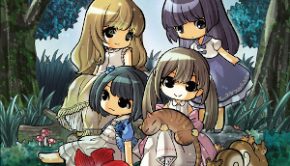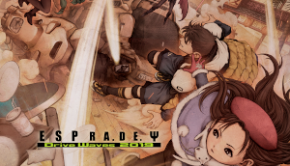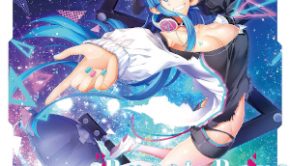Ever Night
 |
Album Title: Ever Night |
| Record Label: COMET GUMMI |
|
| Catalog No.: CMGM-001 |
|
| Release Date: October 29, 2016 |
|
| Purchase: Buy Used Copy |
Overview
Ever Night is the third solo album released by Takahiro Eguchi and the first release under the COMET GUMMI label. While his first album, pgh1, was released under a variety of aliases, his second album is credited under his real name. Much like his second album, it features a blend of vocal themes and instrumental themes. How does it compare to his previous solo albums?
Body
The album opens with “Lotus,” originally featured on Nanosweep 21. It’s quite relaxing, features a lot of ethereal synth and bell tones. It’s a very soothing piece and also features a great melody. Another tune to originally feature on a Nanosweep album is “rainbow,” from the most recent release, Nanosweep 22. It, too, keeps a similar vibe, providing an extremely atmospheric listen featuring ethereal synths, beautiful piano lines, light percussion, and a spacey, futuristic vibe.
There are also two arrangements of Touhou music that previously featured on other doujin releases. “Passenger,” sung by Salita, is one such piece. Originally from Energy Arrow, it’s an arrangement of “Emotional Skyscraper ~ Cosmic Mind,” from Touhou 12: Undefined Fantastic Object and features distorted electronica, bubbly synth, an 80s vibe in the synth, and a great melody. The second piece, “COLOR ME RAD,” originally from REVIVE 2 EDEN, is sung by Mii Shiraha and is an arrangement of “Spring Lane ~ Colorful Path” from the game, Touhou 9: Phantasmagoria of Flower View. It follows a more chill progression, providing bell tones, soft synths, and an acoustic electronic instrument palette. The singer does leave a bit to be desired, however.
In addition to music previously released, there are also some guitar instrumentals of various pieces that have been released throughout Eguchi’s various contributions to original albums. Done by Takumikeinosuke, the three pieces, “Pastel Planet,” originally from Pictone, “Antique Memory,” originally from Tomorrow is the Name of the Continuing World, and “Newborn World,” featured on this album, all provide rustic acoustic guitar interpretations that retain the melodic structure of the piece, but are certainly more simplistic in nature. As a result, while enjoyable, some of the elements that made the originals stand out are absent, so the mileage may vary depending on how much you enjoyed the original.
Of course, there are plenty of new tunes featured on the album as well. “Newborn World,” sung by Hana, is a beautiful pop tune featuring guitar, piano, and crystalline synths. Of particular note is the melody and the stark contrast between the soft verses and the more powerful chorus sections of the tune. It’s certainly my favorite of the new tunes on the album. Another highlight of hte album is “Close and Far Away.” Although this tune is originally from Eguchi’s paragraph album, this rendition is a completely new arrangement and features a new singer, Ahiru. The approach is much more subdued compared to the original, offering a ballad-like approach. The elements featured in the original, such as beautiful synths, an upbeat synth solo that helps tie it to the original piece, are still present, but also incorporating new elements like some bass guitar that helps give the approach a bit more of a groove.
The last four original tunes all have a ethereal quality to them, capturing some of the same vibes that “Lotus” or “rainbow” give on the album, but with added vocals. “The World Through Glass,” sung by Michiru Saito, features an airy melody, synth, and bell accompaniments to give an effervescent sort of vibe. “Dakanaitsu,” sung by Fuyuno Sakura, takes a similar approach but incorporates vocoder, giving it a bit of an 80s vibe. The melody itself is nice, but the accompaniment does get a bit on the repetitive side. “Tonight,” sung by Hotaru, is bubbly, effervescent, and features wispy vocals that complement the melody while “Come to See,” sung by Taekawa Aki, also features airy vocals, but takes a more minimalist electronic approach to the music which help contributes to the ethereal atmosphere.
Summary
While not as impressive as his paragraph album, there is certainly a common element in most of the music featured on the album: softness. Many of the tunes, whether they are instrumental or vocal, aren’t overtly aggressive, like some of Eguchi’s previous music. There is certainly a beauty found to most of the album, but at times, the tunes, while unique, give off a bit of the same atmosphere, which may make some listeners feel as though some of the music blends together. In the end, however, is an album that fans of Eguchi’s original works, especially those featuring vocals, should enjoy to some degree.
Do you agree with the review and score? Let us know in the comments below!
4
Posted on November 8, 2016 by Don Kotowski. Last modified on November 8, 2016.














